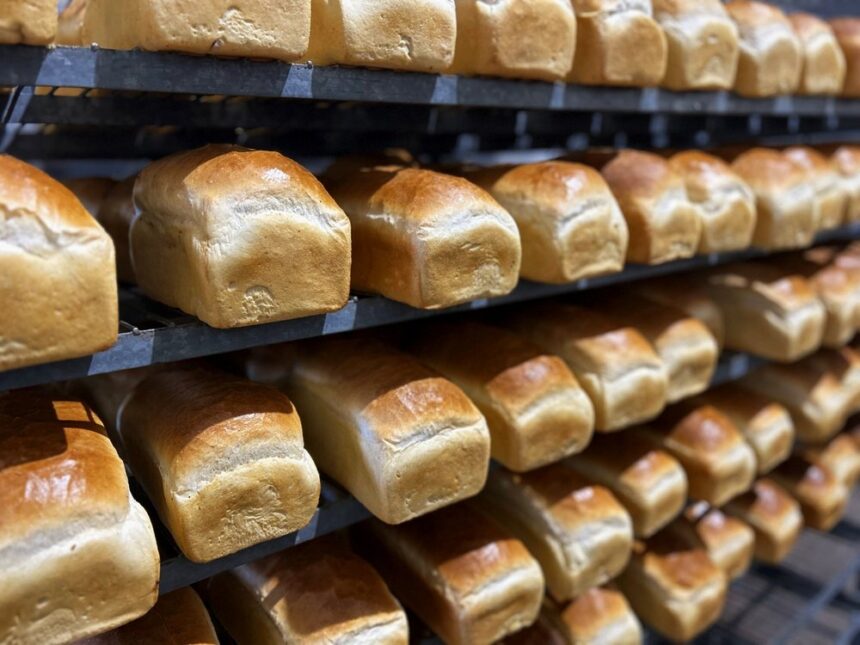In Otjinene, a small bakery known as Omboroto Yetu is fighting for survival due to competition brought to its doorsteps by established entities allegedly deploying unfair pricing.
At the moment, Omboroto Yetu is grappling with the harsh realities of competition from larger corporations, particularly in light of aggressive promotional strategies by Shoprite and Namib Mills, New Era has learnt.
Owner Oscarline Muundjua has voiced her concerns about how these promotions are squeezing out local businesses.
“When the Namib Mills bread is on special, then the whole of Otjinene freezes,” she said, emphasising that customers flock to the supermarket for cheaper options, leaving her bakery struggling to sell its products.
Since opening its doors in October 2017, Omboroto Yetu initially thrived by securing shelf space at Usave, a brand owned by retail giant Shoprite.
However, the dynamics shifted in 2022 when Shoprite launched a full-blown supermarket, and introduced Namib Mills’ bread at competitive prices.
Muundjua stated that despite pricing their bread at N$13, their sales drastically decline during promotional periods.
The situation escalated with what was termed the “Back-to-School” special in January 2023, where Namib Mills offered promotions like “buy 2 for N$20”.
“On the days of the special, our bakery would make very few sales, leading to unsold bread going stale, and requiring replacement without compensation. This not only impacts our revenue, but also adds financial strain to the operations,” Muundjua continued.
The concerned entrepreneur highlighted that Namib Mills controls the supply of bread flour and can produce on an industrial scale, allowing them to undercut prices significantly.
She pointed out that Shoprite benefits from this relationship as they make bigger profit margins on Namib Mills’ bread, compared to what they earn from SME bakeries like Omboroto Yetu.
Muundjua’s exper ience talks to the issue regarding fair competition, and the survival of local businesses in an increasingly corporate-dominated market.
Her story serves as a poignant reminder of the struggles faced by SMEs against larger entities with more resources and market influence.
In response to these challenges, Omboroto Yetu sought intervention from the Namibian Competition Commission (NaCC).
Documents seen by this publication show the two engaged on several occasions.
“Namib Mills is destroying SMEs, and the NaCC has turned a blind eye and a deaf ear to our cries,” she lamented.
The NaCC initially closed an inquiry into Omboroto Yetu’s grievances in June 2023, citing Shoprite’s claims that the bakery lacked proper registration and barcode numbers. However, Muundjua countered that they indeed possess GS1 registration and their own barcodes, but were denied the right to use their name on bread stickers by Shoprite.
Documents show that the NaCC had promised to halt promotions by Namib Mills and Shoprite until the issue was resolved, yet discounts continued unabated, further harming local businesses.
During a recent meeting with the NaCC, Namib Mills claimed that lowering bread prices was intended to make bread more affordable for the poor.
In response, Omboroto Yetu requested transparency regarding Namib Mills’ internal flour input prices, and called for a reduction in flour retail prices to enable all bakeries to offer competitive prices.
“It is not feasible for SME bread businesses to sell bread at N$10.00 in Namibia, with the current input costs. How fair is it to sell bread for N$8.99 when it’s transported from Windhoek?” Muundjua asked.
The implications of these practices extend beyond financial losses; they threaten the livelihoods of local employees and their families. “These five employees put bread on their family tables, and are able to send their children to school with their salary,” Muundjua shared, expressing concern over a recent downsizing within her business. When contacted for comment, Didirich van Wyk, who is the procurement manager of Shoprite, said, “No comment; we have been cleared by the NaCC”.
-mndjavera@nepc.com.na


